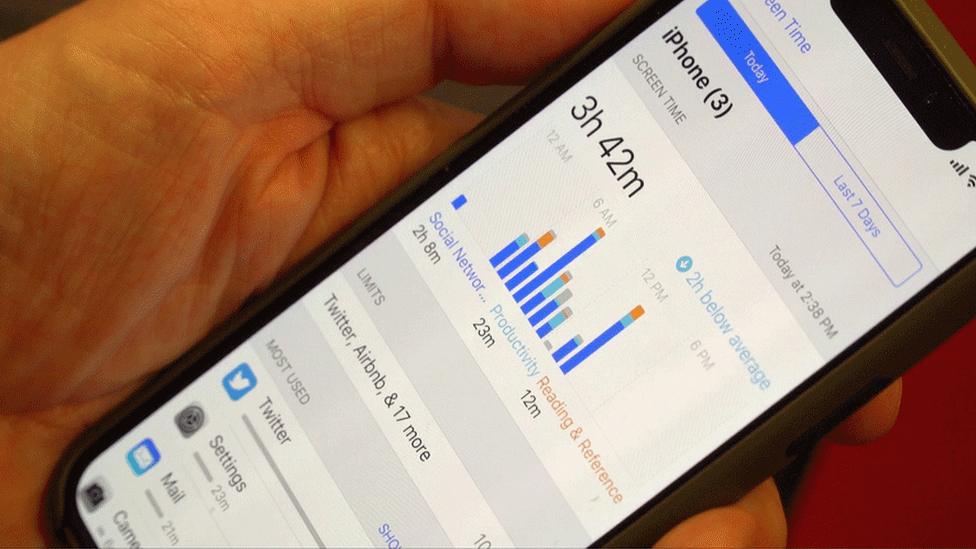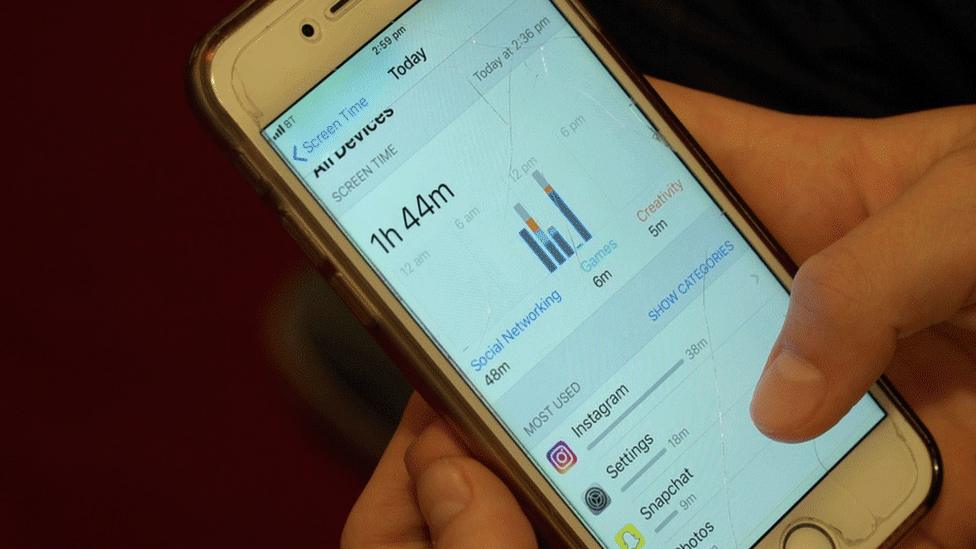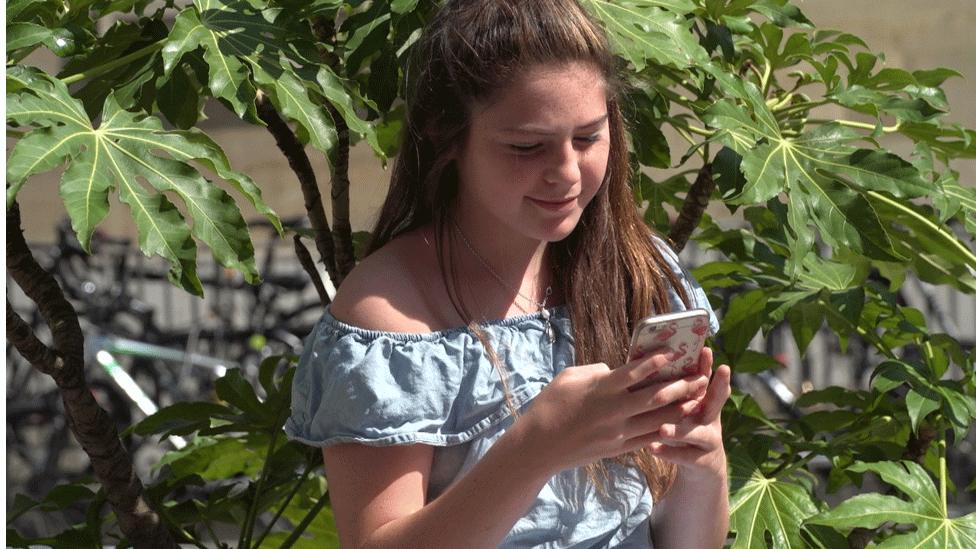Confessions of a smartphone addict
- Published
WATCH: Are Rory and Lily addicted to their phones?
There has been a lot of talk lately about the perils of mobile phone addiction and the efforts of tech companies to help us cut down.
So we at the BBC decided to run an experiment with two heavy phone users, one a 12-year-old girl, the other a middle-aged man.
The results are in and we've found that one is a needy social media addict forever glued to their screen - and the other is a rather more sensible phone user.
Yes, my name is Rory Cellan-Jones and I am a phone addict. I knew that already but the experiment we conducted along with Lily, the 12-year-old daughter of my BBC colleague Jane Wakefield, confirmed it.

Rory's screen time was high, with Twitter largely to blame

Lily's screen time was more modest
Each of us signed up to Apple's software developer program so that we could install iOS 12, the new mobile operating system which will be available to everyone in September.
It has a new feature called ScreenTime which allows you to monitor how you are using an iPhone and set yourself limits. A similar feature is already available on Android phones.
ScreenTime also allows parents to monitor their children's phone use, so Jane was able to keep an eye on Lily. Mind you, it might have been better if she had been monitoring me.
Within hours of installing the trial version of the operating system, my excessive attachment to my phone became evident.
Just after 10 one morning, I found I had already clocked up two hours and 38 minutes of screen time. I had picked up the phone nine times every hour and had received 33 notifications.
Modest usage
Now, some of my time had been spent on serious stuff like checking my email and the BBC News app - but on this and other days one activity dominated my phone use.
I had spent an hour looking at Twitter or sending tweets. No surprise really - first thing at morning and last thing at night I tend to glance at the social media app which has become my early warning system for breaking news.
When I met up with Lily to compare notes, it turned out that hers was a similar story of social media use, albeit on a much more restrained scale. By just after 15:00 she had been on her phone for one hour and 44 minutes, with 38 minutes of that on Instagram and nine on Snapchat.
Lily admits she is addicted to the photo-sharing service owned by Facebook. "It's got a lot of things to it so I find myself on it a lot. I started on it at 06:00 and have used it throughout the day."

Lily is less worried about her usage than that of her parents
But of course that is as nothing compared to my phone use. "You do use it quite a lot," says Lily, as I show her my results - three hours and 44 minutes of screen time, with two hours of that on Twitter.
Her mum Jane sits looking smug, pointing out that her phone shows modest usage of 48 minutes so far today.
She is glad to have the ability to monitor Lily's phone activity, although she has not yet set limits on what her daughter can do.
"If she's staying in her bedroom a lot and I'm not seeing her all day - especially now we're in the school holidays - then I might have to go on there and start setting some restrictions," Jane says.
Lily is not too keen on that idea but admits there could be an upside, saying: "I'd have time to spend time with the family and go outside and do other stuff."
But she goes on to drop a bombshell about the Wakefield household - when the family go out for meals, it's often her parents who are distracted by their phones, with their children struggling to gain their attention.
Jane steers the conversation back to the real addict - me - suggesting I need to book myself into a clinic for treatment.
I'm not going to go that far but I am thinking of setting limits on my daily Twitter use. Let's see - does two hours a day seem about right?
You can hear more about this on this week's edition of the BBC World Service's Tech Tent, on Friday 27th July at 3pm BST.